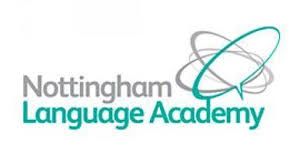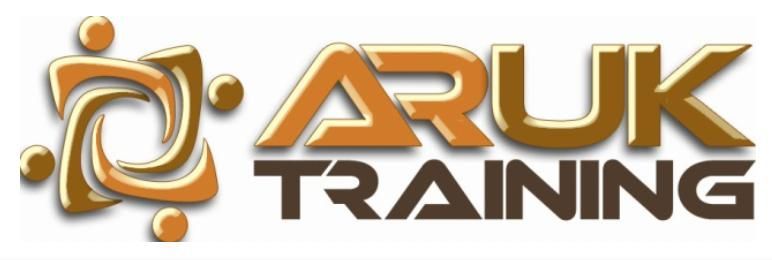
Mastering Strategic Thinking and Planning Skills
Course ID: 2507280101154EGI
Course Dates : 28/07/25 Course Duration : 5 Studying Day/s Course Location: London, UK
Language: Bilingual
Course Category: Professional and CPD Training Programs
Course Subcategories: Operations and Process Excellence
Course Certified By: * Projacs Academy
* Professional Training and CPD Programs
Certification Will Be Issued From :
KSA
Course Fees: £4,838.34
Vat Not Included in the price. VAT may vary depending on the country where the course or workshop is held.
Click to Pay
Date has passed please contact us Sales@e-s-hub.com
Course Information
Introduction
Strategic thinking and planning are the cornerstones of effective decision-making and organizational success. In an increasingly competitive and dynamic business environment, professionals must possess the ability to anticipate challenges, identify opportunities, and align resources with long-term goals. This course is designed to equip participants with the tools, frameworks, and methodologies necessary to excel in strategic roles. By blending theoretical insights with practical applications, it addresses the growing demand for leaders who can navigate complexity while fostering innovation.
One of the key challenges faced by organizations today is the gap between strategic intent and execution. Many professionals struggle to translate high-level visions into actionable plans due to a lack of structured approaches or insufficient analytical skills. For instance, a case study involving a multinational corporation revealed that despite having a robust strategic vision, the absence of clear implementation frameworks led to missed targets and resource misallocation. This course aims to bridge such gaps by providing participants with a comprehensive understanding of strategic models like SWOT analysis, PESTLE frameworks, and Balanced Scorecards, enabling them to design strategies that are both visionary and executable.
The benefits of mastering strategic thinking extend beyond individual career advancement. Organizations that invest in developing these competencies often experience enhanced adaptability, improved performance metrics, and sustainable growth. Leaders equipped with strategic acumen can better anticipate market shifts, mitigate risks, and capitalize on emerging trends. Consider the example of a tech startup that leveraged scenario planning to pivot its product offerings during a global economic downturn—this foresight not only ensured survival but also positioned the company as a market leader post-crisis.
This course draws upon established theories and industry best practices to provide a rigorous learning experience. Concepts such as Michael Porter’s Five Forces, Blue Ocean Strategy, and the McKinsey 7S Framework will be explored in depth, offering participants a holistic view of strategic management. These frameworks have been validated across industries, from healthcare to finance, underscoring their universal applicability. Furthermore, recent trends emphasize the importance of integrating data-driven insights into strategy formulation, reflecting the evolving nature of this discipline.
Real-world examples further illustrate the transformative power of strategic thinking. A retail giant facing declining sales implemented a customer-centric strategy informed by behavioral analytics, resulting in a significant rebound in revenue. Similarly, an educational institution adopted a collaborative planning approach to address declining enrollment rates, achieving measurable improvements within two years. Such stories highlight how strategic thinking can drive tangible outcomes when applied effectively.
Ultimately, this course empowers participants to become catalysts for change within their organizations. Whether you are a seasoned executive seeking to refine your leadership capabilities or an emerging professional eager to build foundational skills, the program offers invaluable insights tailored to diverse needs. Through interactive sessions, case studies, and hands-on exercises, attendees will emerge equipped to tackle complex challenges and contribute meaningfully to their organizations’ success.
Objectives
By attending this course, participants will be able to:
Analyze internal and external factors influencing organizational strategy using frameworks such as SWOT and PESTLE.
Evaluate competitive dynamics within an industry through the lens of Porter’s Five Forces model.
Design innovative strategies leveraging concepts like Blue Ocean Strategy and disruptive innovation.
Implement strategic plans by aligning resources, timelines, and performance indicators with organizational goals.
Apply scenario planning techniques to anticipate and prepare for potential future disruptions.
Assess the effectiveness of executed strategies using balanced scorecards and other evaluation tools.
Integrate ethical considerations and sustainability principles into strategic decision-making processes.
Who Should Attend?
This course is ideal for:
Mid-to-senior level managers responsible for driving organizational strategy.
Consultants tasked with advising clients on strategic initiatives.
Entrepreneurs looking to scale their businesses through thoughtful planning.
HR professionals involved in talent development and succession planning.
Educators and trainers aiming to incorporate strategic thinking into curricula.
Project managers overseeing large-scale initiatives requiring alignment with corporate objectives.
These groups will find the course valuable as it equips them with the analytical and practical skills needed to address real-world challenges. While prior exposure to basic strategic concepts is beneficial, the course is suitable for intermediate learners seeking to deepen their expertise.
Training Method
• Pre-assessment
• Live group instruction
• Use of real-world examples, case studies and exercises
• Interactive participation and discussion
• Power point presentation, LCD and flip chart
• Group activities and tests
• Each participant receives a 7” Tablet containing a copy of the presentation, slides and handouts
• Post-assessment
Program Support
This program is supported by:
* Interactive discussions
* Role-play
* Case studies and highlight the techniques available to the participants.
Daily Agenda
The course agenda will be as follows:
• Technical Session 08.30-10.00 am
• Coffee Break 10.00-10.15 am
• Technical Session 10.15-12.15 noon
• Coffee Break 12.15-12.45 pm
• Technical Session 12.45-02.30 pm
• Course Ends 02.30 pm
Course Outlines
Foundations of Strategic Thinking
Understanding the role of strategy in organizational success.
Key components of strategic thinking: Vision, Mission, Values.
Introduction to SWOT Analysis and its application.
Overview of PESTLE framework for environmental scanning.
Day 2:
Competitive Analysis and Innovation
Exploring Porter’s Five Forces Model.
Identifying competitive advantages and differentiators.
Principles of Blue Ocean Strategy and value innovation.
Case study: Disruptive innovations in technology sectors.
Day 3:
Strategic Planning and Execution
Steps in creating a comprehensive strategic plan.
Aligning resources and capabilities with strategic goals.
Techniques for prioritizing initiatives and setting KPIs.
Overcoming common barriers to strategy implementation.
Day 4:
Scenario Planning and Risk Management
Fundamentals of scenario planning and forecasting.
Building resilience against unforeseen disruptions.
Tools for identifying and mitigating strategic risks.
Group exercise: Developing contingency plans.
Day 5:
Measuring Success and Ethical Considerations
Using balanced scorecards to track progress.
Evaluating the impact of executed strategies.
Incorporating ethics and sustainability into decision-making.
Final workshop: Presenting a strategic proposal.



















































